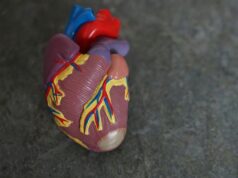
Results from the OPTION study have shown that patients with dual-chamber implantable cardioverter defibrillators (ICD) experienced a significantly lower incidence of inappropriate shocks compared with patients with standard single-chamber devices (4.3% vs.10.3%, p=0.015). The study also found that there was no difference in all-cause mortality between the two groups.
The OPTION study results were presented by principal investigator Christof Kolb, Deutsches Herzzentrum, Munich, Germany, at a late-breaking clinical trial session at the Heart Rhythm Society (HRS) meeting (Denver, Colorado, 8–11 May).
The aim of the randomised trial, said Kolb, was to assess whether an optimised treatment with dual-chamber ICD’s reduces the rate of inappropriate shocks as compared to single-chamber ICDs on a long-term follow-up. A total of 462 patients at 54 centres in Europe and North America were enrolled in the study from 2006–2009. Kolb explained that all patients received a dual-chamber ICD (Ovatio 6550 DR, Sorin Group) and were randomised to receive either dual-chamber or standard single-chamber ICD programming. Dual-chamber settings included arrhythmia detection using atrial and ventricular information and a pacing mode that avoids unnecessary right ventricular stimulation (safeR), while in the single chamber settings the device only used the ventricular information and pacing was performed as ventricular back-up stimulation. Study endpoints were the occurrence of appropriate and inappropriate shocks and all-cause mortality. Median follow-up was over two years.
During an average follow-up of 710.4±242.2 days, ICD shocks occurred in 19.9% of all patients randomised. Kolb said that ICD therapy with dual chamber (PARAD+) discrimination was associated with a significantly lower incidence of inappropriate shocks (4.3%) vs. single-chamber discrimination (10.3%). “The benefit of dual-chamber therapy is achieved along with a negligible amount of ventricular pacing similar to the one observed in single-chamber therapy, a low incidence of atrial lead complication and no difference in all-cause mortality,” he added.
“This is very good news for patients. We have known for a long time that inappropriate shocks were associated with poor quality of life and adverse outcomes,” said Kolb. “The findings demonstrate that patients can rest assured that their Sorin ICD is correctly monitoring their heart and delivering only the therapy that is needed.”
“The results of the OPTION study fill an evidence gap,” said Dan Dan, Piedmont Heart Institute, Atlanta, USA. “We always thought that dual-chamber ICDs which preserve the natural cardiac conduction, were a better choice for our patients. This has been proven in this well-designed study,” he said.
Kolb announced that more detailed data on the OPTION study will be presented at the European Heart Rhythm Association (EHRA) Europace meeting (Athens, Greece, 23–26 June 2013) in a late-breaking trial session.









